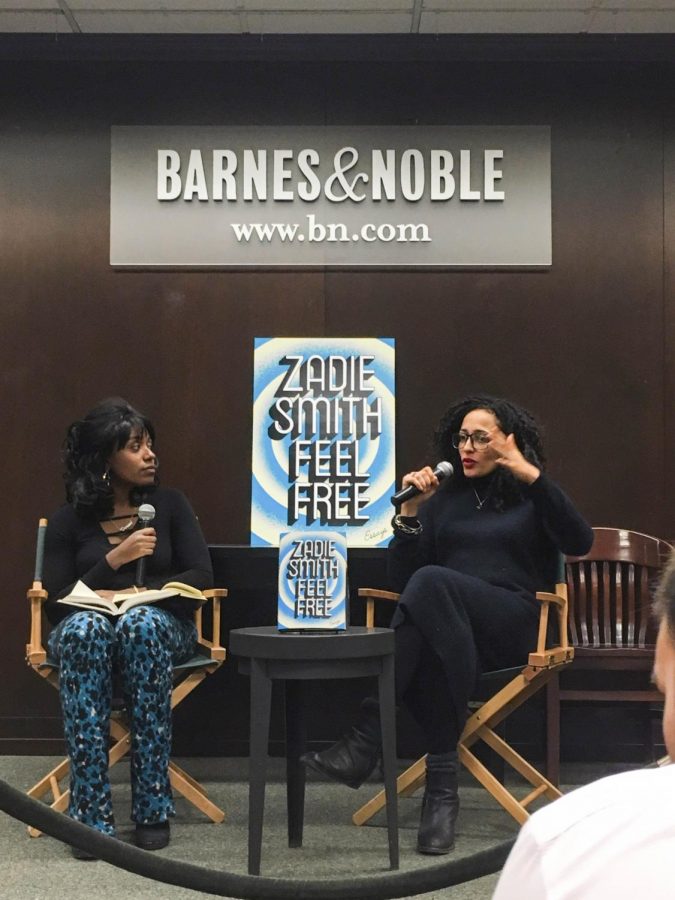Zadie Smith Talks New Book ‘Feel Free’
Novelist Zadie Smith being interviewed by New Yorker staff writer Doreen St. Félix at the Barnes and Noble on 82nd Street and Broadway last Thursday.
February 12, 2018
“It’s a profound misunderstanding of what life is for,” Zadie Smith said last Thursday, speaking about the nature of celebrity and those who strive for it. “What are you aspiring to?” she asked.
Smith was speaking in conversation with Doreen St. Félix, a staff writer for The New Yorker, about her new book of essays, “Feel Free.” The talk, at the Barnes & Noble on 82nd Street and Broadway, covered a wide range of topics in her essays, including, but not limited to: authenticity, the writing process, the old guard of hip-hop, Billie Holiday impersonations, the internet, Brexit and Justin Bieber.
An acclaimed novelist, essayist and short story writer, Smith has been a professor at NYU’s Creative Writing Program since 2010. “Feel Free,” her second essay collection and her first book since 2016’s “Swing Time,” contains pieces written between 2009 and 2017 for a variety of publications, including The New Yorker and The New York Review of Books, as well as previously unpublished work.
St. Félix, in her questions to Smith, called “Feel Free” “a book about process” and processing the world that “embraces ambivalence.”
Discussing one of the most famous essays in the collection, 2010’s “Generation Why?” the conversation moved towards the role of the Internet in society, how it has changed since she wrote the piece and why she’s not on social media.
“If I’m online, it takes up my entire day,” she said. “I like that space of [independence and freedom].”
Turning toward the idea of identity as a place of authority, Smith discussed fellow NYU professor Kwame Anthony Appiah’s concept of the Medusa Syndrome. Smith referenced conversations she had with Appiah, a professor in NYU’s Department of Philosophy, to describe the ways that, in having one’s identity recognized, “something which was ambiguous, ambivalent and moving, becomes frozen in place.”
She cited the idea or stereotype of the “righteous black female subject” and how that influences how her students see and interact with her.
“I’m not interested in the pedestal,” she said. “I want to be a human being.”
Moving to politics, Smith talked about her experience lunching at the White House with President Obama and several other prominent writers.
“His presence makes you feel peaceful,” she said. “If asked, I wouldn’t have said he was a politician, I would have said he was a writer.”
Smith’s extemporaneous, spoken voice is much the same as the one her written work is known for. She was incisive, thoughtful, a little cutting and extremely funny.
A version of this article appeared in the Feb. 12 print edition.
Email Alex Cullina at [email protected].




























































































































































